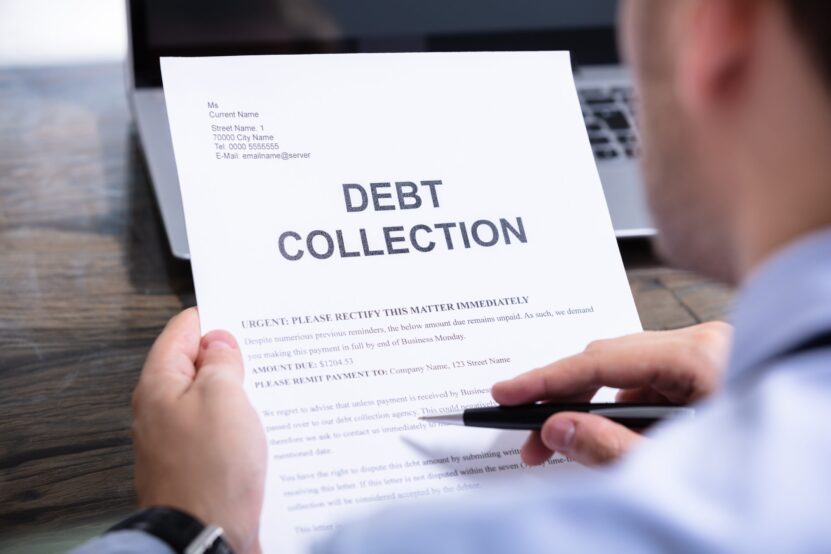Debt collection is a topic that affects many individuals and businesses alike. Whether it’s an unpaid personal loan, credit card debt, or outstanding invoices for a business, the process of debt collection can often feel overwhelming.
Understanding the fundamentals, your rights, and the strategies available for managing debt can make a significant difference in navigating these situations confidently.
What Is Debt Collection?

Debt collection refers to the process by which creditors or collection agencies recover money owed by borrowers. This process can vary depending on whether the debt is being collected by the original creditor or a third-party collection agency.
For businesses, this might involve sending invoices, reminders, or legal notices. For individuals, debt collection may involve calls, letters, or formal legal proceedings.
It is important to recognise that debt collection is a regulated activity in many countries, including the UK.
There are strict rules that govern how creditors can pursue debts, and these are designed to protect consumers from unfair or aggressive practices.
Common Methods of Debt Collection
Creditors and agencies use several methods to recover outstanding debts. These can include:
- Telephone and written communication: Most debt collectors initially contact the debtor through letters or phone calls. This is often the first step to remind the borrower of the unpaid amount and to negotiate repayment options.
- Payment plans: Many agencies are willing to agree to structured repayment plans that allow the borrower to pay off the debt in manageable instalments over time.
- Legal action: In cases where debts remain unpaid, creditors may escalate the matter to legal proceedings. This can result in court judgments and, in some cases, enforcement actions.
Understanding the approach used by debt collectors can help individuals and businesses respond appropriately, ensuring that the situation is handled in a legally compliant and fair manner.
Your Rights in Debt Collection

Consumers in the UK have a range of protections under the law to prevent harassment and ensure fair treatment. Key rights include:
- The right to be treated fairly and respectfully by debt collectors.
- The right to request verification of the debt, ensuring that the amount claimed is accurate and legally owed.
- Protection against harassment, including excessive phone calls or threatening behaviour.
Being aware of these rights can help debtors respond confidently to collection efforts and prevent unnecessary stress or intimidation.
Strategies for Managing Debt
Proactively managing debt is often the most effective way to reduce stress and avoid escalation. Some practical strategies include:
- Budgeting and prioritisation: Assessing your finances to understand what you can realistically afford to pay each month can prevent debts from spiralling.
- Negotiating with creditors: Open communication with creditors may lead to reduced interest rates, extended repayment periods, or other concessions.
- Seeking professional advice: Debt advice organisations can offer guidance on repayment plans, legal rights, and insolvency options where appropriate.
The Role of No Win No Fee Debt Collection

In recent years, “no win no fee debt collection” services have become increasingly popular.
These services allow businesses and individuals to pursue owed debts without upfront legal costs. Essentially, if the debt collection effort is unsuccessful, the client pays nothing, reducing financial risk.
No win no fee debt collection is particularly useful for smaller businesses or individuals who may be hesitant to engage in costly legal proceedings.
By partnering with experienced debt recovery professionals, clients can improve their chances of recovering outstanding debts while maintaining control over costs.
Benefits of Professional Debt Recovery Services
Using a professional service for debt collection offers several advantages:
- Expertise in legal and regulatory requirements ensures that all actions are compliant with UK law.
- A structured approach increases the likelihood of recovering debts quickly and efficiently.
- Reduced personal stress, as professional agencies manage communication and negotiation with debtors.
For those looking to explore this option further, detailed information on the benefits of no win no fee debt collection can be found through this service.
The Impact of Debt on Credit Scores
One of the most significant consequences of unpaid debt is its effect on credit scores. Late payments, defaults, and court judgments can all appear on a credit report, making it harder to access loans, mortgages, or even rental agreements in the future.
Understanding how debt collection affects credit ratings empowers individuals to take timely action, such as negotiating repayment plans or seeking professional advice, to limit long-term financial damage.
When to Seek Legal Support

In some situations, especially when debts are disputed or when collection efforts escalate to court proceedings, seeking legal advice is essential.
Solicitors who specialise in debt recovery can help both creditors and debtors understand their rights, prepare documentation, and represent them in legal actions.
For businesses, professional legal support ensures compliance with regulations, while for individuals, it provides protection against unfair or unlawful practices.
Preventing Debt Issues in the Future
While managing existing debt is important, preventing future debt problems is equally crucial.
Simple measures such as maintaining an emergency savings fund, avoiding over-reliance on credit, and regularly reviewing financial commitments can help individuals and businesses stay in control.
Businesses, in particular, can benefit from clear payment terms, timely invoicing, and credit checks on new clients to reduce the risk of unpaid bills.
Prevention strategies not only safeguard financial stability but also minimise the likelihood of stressful debt collection situations arising again.
Conclusion
Debt collection can be a daunting process, whether for personal debts or business-related invoices.
Understanding your rights, knowing the methods creditors may use, and being aware of strategies for managing debt are essential steps for anyone navigating this area.
For those looking to recover owed funds with minimal financial risk, no win no fee debt collection services provide a valuable solution, combining professional expertise with the assurance that costs are only incurred when recovery is successful.
By staying informed and proactive, both individuals and businesses can approach debt collection with confidence and clarity.

